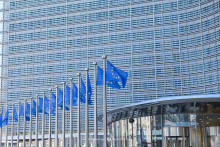The European Union, under the leadership of Ursula von der Leyen, proposes a significant increase in taxes on tobacco products to reduce tobacco consumption and lower cancer incidence. Tax hikes are considered the most effective measure to reduce smoking. The proposal also includes new tobacco products such as e-cigarettes and nicotine pouches. The tobacco industry criticizes the move, warning of potential growth in the black market. In Montenegro, the Special State Prosecutor’s Office is investigating and filing charges against an organized criminal group involved in cigarette smuggling, linked to budget losses exceeding 18 million euros. The EU also calls for the destruction of seized cigarettes in the free zone of the Port of Bar, identified as a hub for cigarette smuggling. These measures and events highlight the EU and its member states’ strong fight against smoking and illegal tobacco trade.
Political Perspectives:
Left: Left-leaning sources emphasize the public health benefits of increasing tobacco taxes, highlighting the reduction in smoking rates and cancer cases. They support strong regulatory measures and stress the importance of combating the tobacco industry’s influence and the illegal cigarette market.
Center: Center-leaning sources present a balanced view, acknowledging the health benefits of tax increases while also noting the economic impact on consumers and the potential rise of black market activities. They focus on the need for effective enforcement and fair tax policies adjusted to economic conditions of member states.
Right: Right-leaning sources focus on the economic consequences of increased tobacco taxes, warning about the growth of the black market and the negative impact on small and medium-sized producers. They criticize the EU’s approach as potentially harmful to businesses and emphasize the need to protect economic interests alongside public health.

























